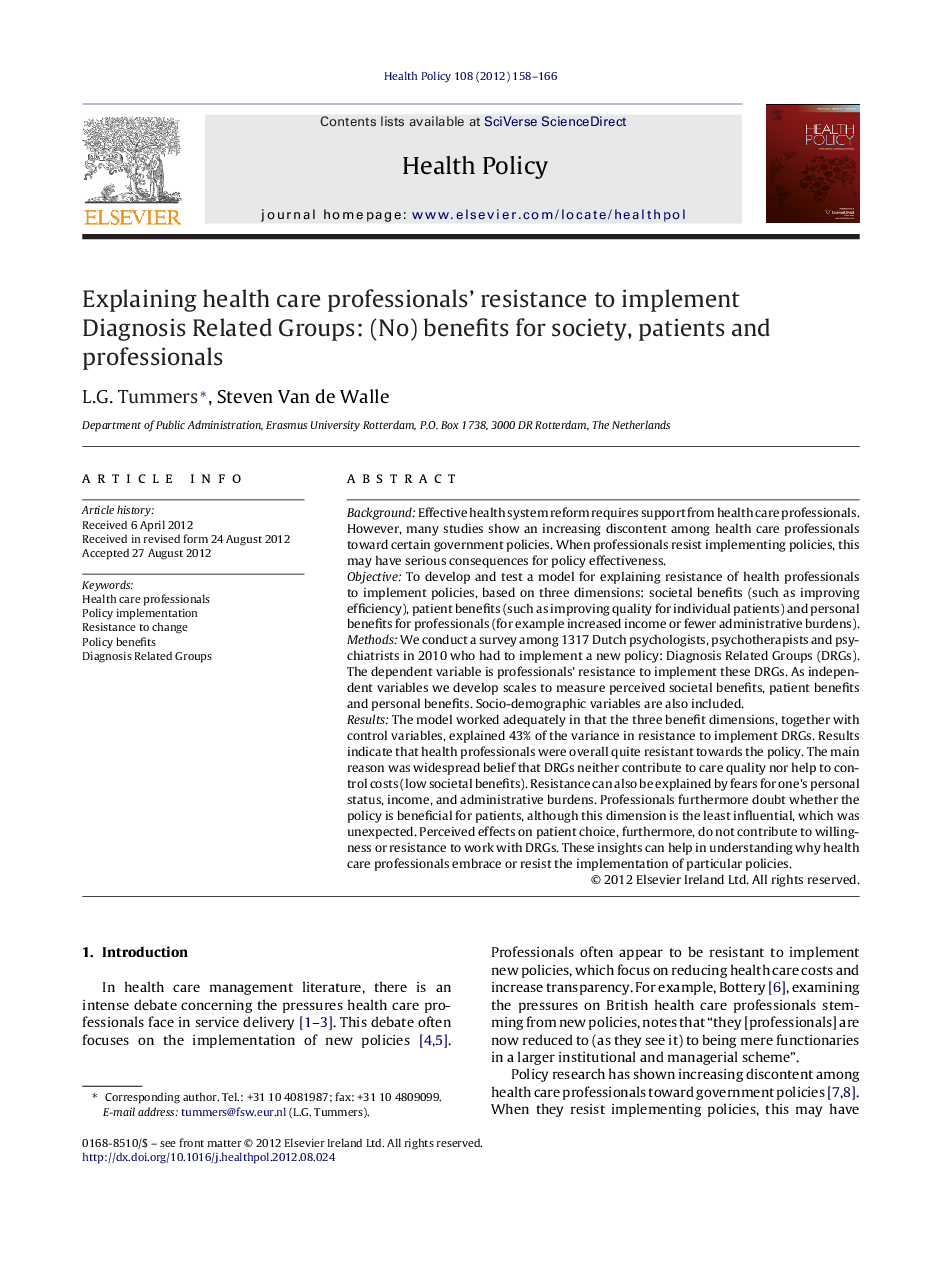| کد مقاله | کد نشریه | سال انتشار | مقاله انگلیسی | نسخه تمام متن |
|---|---|---|---|---|
| 4197874 | 1609024 | 2012 | 9 صفحه PDF | دانلود رایگان |

BackgroundEffective health system reform requires support from health care professionals. However, many studies show an increasing discontent among health care professionals toward certain government policies. When professionals resist implementing policies, this may have serious consequences for policy effectiveness.ObjectiveTo develop and test a model for explaining resistance of health professionals to implement policies, based on three dimensions: societal benefits (such as improving efficiency), patient benefits (such as improving quality for individual patients) and personal benefits for professionals (for example increased income or fewer administrative burdens).MethodsWe conduct a survey among 1317 Dutch psychologists, psychotherapists and psychiatrists in 2010 who had to implement a new policy: Diagnosis Related Groups (DRGs). The dependent variable is professionals’ resistance to implement these DRGs. As independent variables we develop scales to measure perceived societal benefits, patient benefits and personal benefits. Socio-demographic variables are also included.ResultsThe model worked adequately in that the three benefit dimensions, together with control variables, explained 43% of the variance in resistance to implement DRGs. Results indicate that health professionals were overall quite resistant towards the policy. The main reason was widespread belief that DRGs neither contribute to care quality nor help to control costs (low societal benefits). Resistance can also be explained by fears for one's personal status, income, and administrative burdens. Professionals furthermore doubt whether the policy is beneficial for patients, although this dimension is the least influential, which was unexpected. Perceived effects on patient choice, furthermore, do not contribute to willingness or resistance to work with DRGs. These insights can help in understanding why health care professionals embrace or resist the implementation of particular policies.
Journal: Health Policy - Volume 108, Issues 2–3, December 2012, Pages 158–166